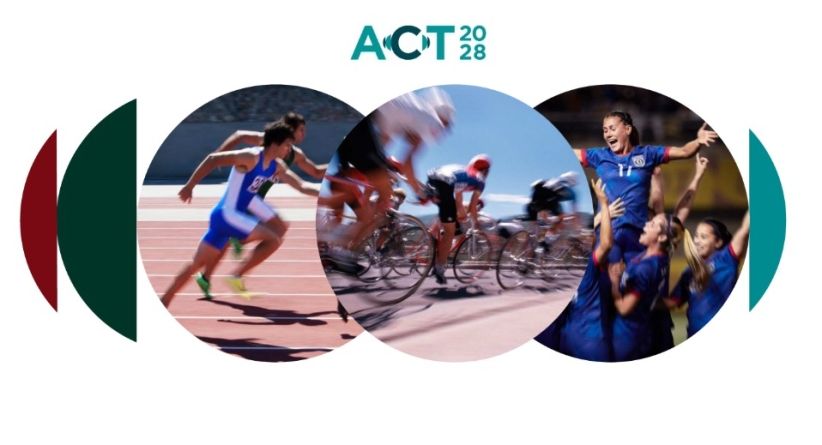
Green real estate: challenges, future developments and investment solutions
Real estate is a priority sector for decarbonisation
The real estate sector, which in 2021 accounted for around 43% of energy consumption and 23% of CO2 emissions in France1, has a crucial role to play in decarbonisation and energy transition. Sustainable real estate – also known as responsible, eco-friendly or green real estate – refers to a range of solutions for applying the three pillars of sustainable development (environmental, social and governance) to the real estate sector. Generally speaking, real estate can be said to be responsible if it seeks to reduce its environmental impact.
What are the current challenges for green real estate?
Green real estate is first and foremost part of an overarching approach to ensuring that buildings are sustainable for the long term and improving comfort for their occupants. These criteria of comfort and sustainability are covered by a number of building certifications and labels aimed at certifying the performance of a building or material. France’s HQE (high environmental quality) certification serves to identify buildings where there is an approach in place to limit their environmental impact while providing a healthy environment for their occupants. Meanwhile, Building Research Establishment Environmental Assessment Method (BREEAM) certification, highly developed in English-speaking countries, assesses a building’s environmental performance based on a variety of criteria such as its impact on health and biodiversity, energy costs, water requirements and waste management. In France, the Effinergie+ label focuses on thermal insulation and controlled mechanical ventilation. France’s HPE (high energy performance) and THPE (very high energy performance) labels confirm that a building achieves a higher level of energy performance than is required by standard regulations. The BBCA label means a new or renovated building is class-leading in terms of its carbon footprint.
Building sustainability criteria must be embedded right from the design and construction phase through the use of sustainable or even recycled resources. This is known as reuse or the circular economy approach. A sustainable material must have a small environmental footprint, contribute to local development and be recyclable once it reaches the end of its life. Ultimately, it is the use of such materials that will make it possible to build buildings that are truly environmentally friendly. While a true recycling industry for construction materials has yet to fully emerge, some initiatives are already working towards this goal. One example is “Le Booster du Réemploi”, a digital platform that promotes reuse of materials, notably in building renovation work. Another is the Biosourced Wood Agreement signed in late 2020 by thirty or so construction sector bodies in the Paris region, all of which have committed to using wood and biosourced materials in 40% of their new buildings.
Sustainability criteria also affect how real estate developments are financed. A new European Union regulation on the disclosure of sustainability information in the financial services sector (the Sustainable Finance Disclosure Regulation, or SFDR – Regulation EU 2019/2088) entered into force in early 2021, requiring fund managers to provide a specific, quantitative breakdown of how they account for the main negative impacts. It is essential to raise awareness of climate issues among all stakeholders in the real estate market if real estate assets are to be made sustainable for the long term. If this kind of approach were to fail, insurers would be forced to bear considerable costs, prompting them to refuse insurance and exclude certain types of warranty, which would in turn erode the market value of assets. Alongside this new regulatory approach, digitalisation (disintermediation, the role of the blockchain), sustainable development (classifying asset managers based on criteria requiring substantial reductions in CO2 emissions per million euros invested) and the incorporation of environmental requirements into investment strategies and regulations will further accelerate the transformation that is already underway in the real estate sector.
Future developments
Green real estate is thus set to develop significantly over the next decade and beyond. The new RE2020 environmental regulations, which entered into force for new buildings on 1 January 2022, brought in a number of foundational measures to help achieve France’s national energy policy goals: gradual removal of natural gas from new housing, introduction of caps on greenhouse gas emissions, support for the use of biosourced materials, etc. RE2020 also means gas heating will no longer be an option for new multiple dwellings from 2025, making way for new technological solutions such as heat pumps and self-consumed solar power. In rental real estate, France’s 2021 Climate and Resilience Act set out a phased plan to address the issue of thermally inefficient homes. From 2025, owners will no longer be able to rent out homes with a rating of “G”. This will be extended to homes rated “F” in 2028 and those rated “E” in 2034. For existing non-residential buildings, France’s so-called “Tertiary Decree” requires owners of premises measuring over a thousand square metres to achieve reductions in their energy consumption of at least 40% by 2030 and 60% by 2050, and equip their roofs with solar panels or vegetalize them.
What solutions are available for investing in green real estate?
When it comes to investing in green real estate, there are currently a number of ways this can be achieved. At the top of the list are green real estate investment trusts (sociétés civiles de placement immobilier or SCPIs), which invest in sustainable property or thermal renovation projects. According to a survey published by French industry bodies OID and ASPIM in March 2022, out of a total of €43 billion in accredited SCPIs at end December 2021, Amundi had the largest share of accredited funds at €16 billion.
Notable SCPIs include Fair Invest, whose portfolio only includes properties with an energy performance rating of “D” or better, and PFO2, which is committed to improving the energy performance of each of its buildings (specifically, cutting water consumption by 30% and energy consumption by 40% within eight years of acquisition). Crowdfunding is also an option, enabling private individuals to invest in sustainable real estate projects through specialist platforms such as Homunity, Anaxago and Wiseed.
Green considerations now an essential component of any real estate investment
The real estate sector is beginning to rise to the challenge of decarbonisation by adopting more sustainable and environmentally friendly construction processes for new buildings and measuring energy performance and carrying out energy retrofits in existing buildings. Various labels and certifications (BBC, BREEAM, HQE, Effinergie, etc.) have been created to promote best practices and incentivise real estate players to take action. Furthermore, the SRI (Socially Responsible Investment) label was extended to real estate funds in 2020. This label singles out funds that take into account ESG (environmental, social and governance) issues and meet criteria relating to waste and energy management, health and mobility of building occupants and respect for biodiversity. Finally, the climate emergency means it is now essential that any investment strategy take full account of the environmental impact of real estate assets.
Quang Khôi Nguyen (Consulting Engineer, Construction and Real Estate, Crédit Agricole S.A. Group Economic Research)
David Balussou (Consulting Engineer, Energy, Crédit Agricole S.A. Group Economic Research)
Sandrine Lafond-Ceyral (Head of Responsible Investment, Amundi Real Assets)
1 Source: https://www.ecologie.gouv.fr/construction-et-performance-environnementale-du-batiment






